June 8, 2025 | 13:27 GMT +7
June 8, 2025 | 13:27 GMT +7
Hotline: 0913.378.918
June 8, 2025 | 13:27 GMT +7
Hotline: 0913.378.918
According to Tran Van Phuc, General Director of the Binh Dinh Province's Department of Agriculture and Rural Development, despite the province’s efforts to combat illegal, unreported, and unregulated (IUU) fishing, violations involving local fishing vessels operating in foreign waters continue to be a challenge. Since the beginning of 2024, local authorities have detained 10 fishing vessels from fishermen in Phu Cat and Phu My districts. Among this group, seven vessels were operating, anchoring, or departing from Ba Ria-Vung Tau province, while three originated from Kien Giang province.
"All fishing vessels that infringe on foreign waters operate, dock, and depart in southern provinces without returning to their original ports. Although local authorities and governments have assigned multiple delegations to meet directly with vessel owners and captains with the aim of promoting awareness against IUU fishing and encouraging compliance, economic incentives drive them to persist in these violations," Tran Van Phuc explained.
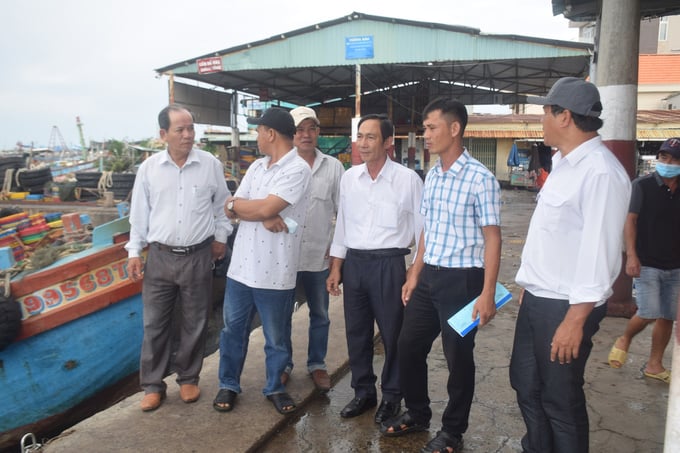
Luong Van Khoa, Deputy Head of the Phu Cat District Agriculture and Rural Development Office (far left), accompanied by the leadership of Cat Minh Commune and Cat Tien Town in Phu Cat District (third and fourth from the left), meeting with fishermen in Ba Ria-Vung Tau to promote awareness against IUU fishing. Photo: V.D.T.
Nguyen Van Hung, Chairman of the Phu Cat District People’s Committee, stated that the district currently houses 887 registered fishing vessels, the majority of which operate in southern fishing grounds.
"In recent years, Phu Cat District has tasked multiple delegations with directly meeting fishermen and vessel owners at docking locations in southern regions to promote awareness against IUU fishing. On the other hand, local task forces have visited the homes of vessel owners to explain the guidelines and require them to sign commitments against infringing on foreign waters. However, the management of vessels measuring between 12 and 15 meters in length is a persisting challenge," Chairman Hung explained.
Hung also noted that the district currently houses 236 fishing vessels measuring between 12 and 15 meters in length. These vessels primarily engage in squid fishing in southern waters. In addition, they rarely return to their original ports and pose a high risk of IUU violations.
In response to this issue, Phu Cat District's government has requested vessel owners to install vessel monitoring systems (VMS), thereby enabling local authorities to track their activities during offshore operations and promptly issue warnings or intervene when violations are detected.
In addition to direct outreach to vessel owners, captains, and crew members, the government of Phu Cat District has expanded its awareness campaigns to include youth union members and, notably, the children of local fishermen. Moreover, schools in the area have also incorporated IUU awareness activities into their education programs, with the aim of promoting compliance and sustainability from a young age.
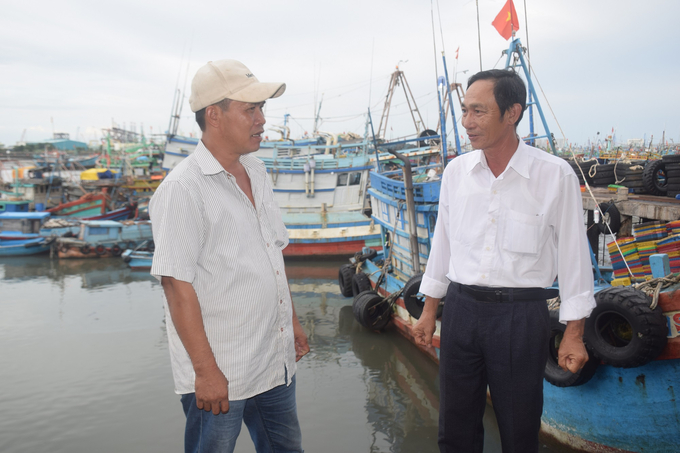
Chau Van Hung, Vice Chairman of the Cat Minh Commune People’s Committee (Phu Cat District, Binh Dinh Province), discussing IUU fishing issues with Phu Cat fishermen in Ba Ria-Vung Tau Province. Photo: V.D.T.
In mid-2022, the Phu Cat District Party Committee issued a specialized resolution to implement urgent tasks and solutions aimed at combating IUU fishing violations. The resolution assigned specific responsibilities to officials and Party members in coastal communes, requiring them to monitor local vessel owners and captains, conduct direct outreach, and ensure signed commitments to prevent IUU violations.
Under the resolution, regions with fishing violations will hold the Secretary of the Party Committee and the Chairman of the People’s Committee of the respective commune or town accountable to the district’s Party Standing Committee and People’s Committee Chairman. Additionally, the collective leadership and individual leaders of these local governments will face a one-level reduction in performance ratings.
"We have instructed the local Department of Agriculture and Rural Development and the provincial Border Guard to continue piloting the installation of vessel monitoring systems (VMS) for fishing vessels that measure between 12 and 15 meters in length. Notably, we emphasized a strong focus on vessels that engage in squid fishing, as this group poses a very high risk of violations," commented Ho Quoc Dung, Secretary of the Binh Dinh Provincial Party Committee.
Translated by Nguyen Hai Long
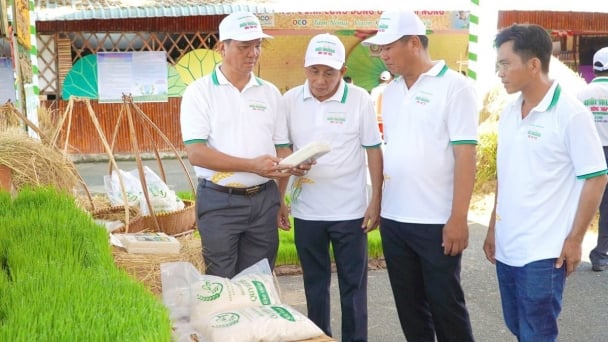
(VAN) Dong Thap has launched a meeting in response to the Action Month for the Environment under the theme 'Live Green - Join Hands for a Green Economy' at Tram Chim National Park.
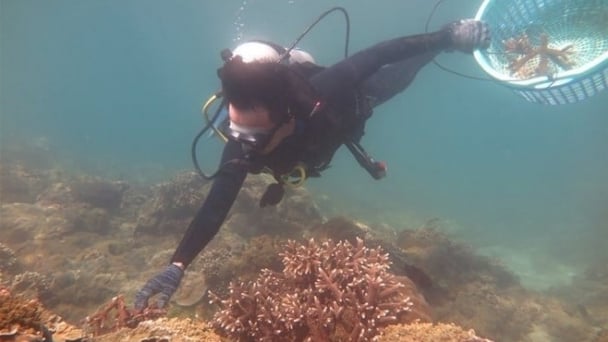
(VAN) The ocean has the capacity to absorb millions of tons of carbon, provided that mangrove forests, coral reefs, and biodiversity are protected.
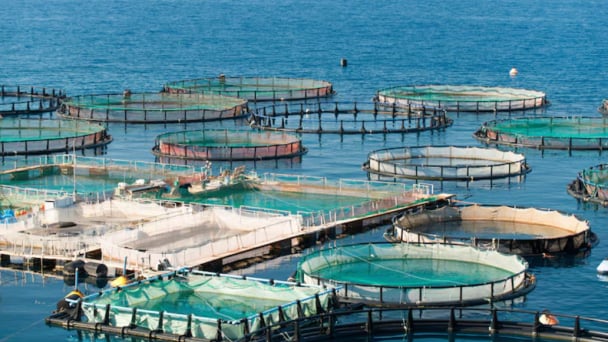
(VAN) Technology is redrawing the map of Vietnamese aquaculture: more modern, greener, and more sustainable.

(VAN) Novel process harnesses machine learning to reveal groups of genes that determine how efficiently plants use nitrogen.

(VAN) Several scientists and farmers are experimenting with soil treatment in some key durian-growing regions such as Cai Lay (Tien Giang), Dak Song, Gia Nghia, and Dak R’lap (Dak Nong).
/2025/05/25/4127-3-073637_820.jpg)
(VAN) Thanks to the promotion from an FAO-implemented project, vegetable production in greenhouses in Moc Chau has seen strong development, from 1.5 hectares in 2021 to nearly 50 hectares in 2024.

(VAN) FAO has recently supported USD 140,000 to implement the project 'Risk mitigation human-animal interface risks through disease control initiatives in pig farming.'